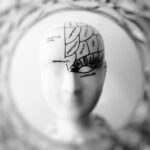A.I in Therapy

The rise of A.I in Mental Health Therapy
The mental health crisis has become a growing concern worldwide, with millions struggling to access timely and affordable therapy. Enter artificial intelligence (AI), a revolutionary force transforming various industries, including mental health care. AI-powered therapy chatbots, such as Woe Bot, Wyse, and Replika, have surged in popularity, offering mental health support at the tap of a button. These digital assistants use advanced algorithms to provide emotional support and cognitive behavioral therapy (CBT)-based solutions. But the burning question remains- Can AI chatbots truly replace human therapists, or are they just a temporary fix?
How A.I Chatbots works in therapy?
AI therapy chatbots operate using natural language processing (NLP) and machine learning algorithms. These systems analyze user inputs, detect emotional patterns, and generate responses based on pre-trained models. Many chatbots are programmed with evidence-based techniques such as CBT, dialectical behavior therapy (DBT), and mindfulness exercises. Users engage with these bots via text or voice interactions, receiving guided responses to help manage stress, anxiety, and depression.
For instance, Woe Bot engages users in daily check-ins, helping them identify negative thought patterns and reframe their mindset. Wysa, on the other hand, offers AI-driven conversations combined with access to human therapists for premium users. These innovations have made mental health support more accessible than ever, especially for individuals hesitant to seek traditional therapy.
Pros & Cons of AI Therapy
✅ Accessibility & Availability – AI chatbots provide 24/7 support, eliminating long wait times for therapy sessions. Anyone with a smartphone or computer can access mental health assistance instantly.
✅ Affordability – Traditional therapy can be expensive, whereas AI chatbots often offer free or low-cost alternatives, making mental health care more inclusive.
✅ Anonymity & Comfort – Many people feel uncomfortable sharing personal issues with a human therapist. AI chatbots provide a judgment-free space for users to express themselves.
✅ Personalized Data-Driven Insights – AI tools analyze user responses over time, detecting patterns and tailoring responses to individual needs, helping users track their mental health progress.
Cons
❌ Lack of Human Empathy & Emotional Intelligence – While AI can mimic human conversation, it lacks genuine emotional depth, compassion, and nuanced understanding that human therapists provide.
❌ Limited Scope for Complex Mental Health Conditions – AI chatbots struggle to diagnose and treat severe conditions like schizophrenia, bipolar disorder, or trauma-related disorders that require human expertise.
❌ Privacy & Data Security Concerns – Storing and processing sensitive mental health data raises ethical concerns about confidentiality and potential misuse of information.
❌ Not Equipped for Crisis Intervention – AI chatbots cannot replace human intervention in high-risk situations, such as suicidal ideation or severe psychological distress.

Can AI Replace Human Therapists?
While AI chatbots provide valuable mental health support, they are not a replacement for professional therapy. Mental health treatment requires a human touch , which AI currently cannot replicate. Empathy, intuition, and deep psychological insight—qualities that define human therapists—cannot be fully programmed into a chatbot.
However, AI can complement therapy in several ways:
– Bridging the Gap – AI chatbots can serve as an entry point for individuals reluctant to seek therapy, gradually encouraging them to engage with human therapists.
– Enhancing Therapy Sessions – Some therapists use AI tools to analyze patient data and provide more personalized treatment plans.
– Offering Immediate Coping Strategies – AI can deliver CBT-based exercises and mindfulness techniques that help users manage symptoms between therapy sessions.
Success Stories- When AI Therapy Works
Many users report positive experiences with AI therapy chatbots, especially for managing mild to moderate anxiety and depression.
– A recent study found that individuals who used Woe Bot for two weeks experienced a significant reduction in depressive symptoms.
– Wyse’s AI-based support has been widely used by corporate wellness programs to reduce employee stress and burnout.
That said, AI is not a one-size-fits-all solution. While some users find AI therapy beneficial, others may feel frustrated by its limitations.

The Future of AI in Mental Health
The integration of AI in mental health care is rapidly evolving. Future AI models are expected to incorporate advanced sentiment analysis, deep learning, and biometric tracking to improve emotional recognition and response accuracy. Emerging innovations may include:
– AI-Human Hybrid Therapy Models – Combining AI-driven preliminary assessments with human therapist interventions for a more effective treatment approach.
– Virtual Reality (VR) & AI Therapy – AI-guided immersive therapy experiences for treating anxiety, PTSD, and phobias.
– Emotionally Intelligent AI – Advanced NLP models designed to understand tone, sentiment, and even facial expressions to enhance user interactions.
Striking the Right Balance
AI therapy chatbots offer an exciting glimpse into the future of mental health care. They provide convenient, cost-effective, and accessible support , making them a valuable tool for mental well-being. However, they lack the emotional intelligence, empathy, and depth of understanding required to replace human therapists entirely.
The ideal mental health approach lies in balancing AI assistance with professional therapy —using chatbots for immediate support while relying on trained therapists for deep, meaningful psychological care. As technology advances, AI will continue to play a vital role in reshaping mental health care, but the human element will always remain irreplaceable.
Would you trust an AI chatbot with your mental health? Share your thoughts in the comments!



